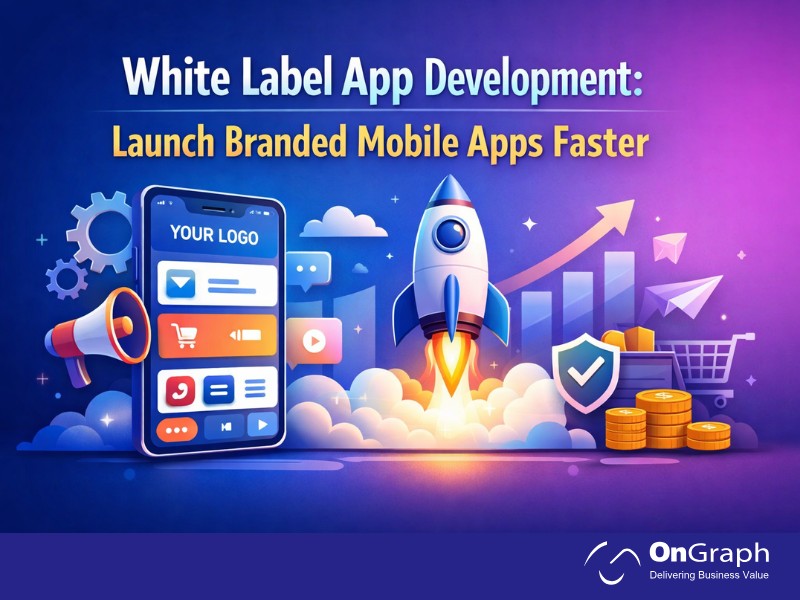In this article
- AI Revolution in CRM
- Hyper-Personalization in CRM for Better Customer Engagement
- IoT Meets CRM for In-depth Customer Insights
- The Rise of Social CRM
- Low-code/No-code CRM for Innovation Without Complexities
- Mobile CRM
- Data Security
- CRM Automation for Better Lead Nurture
- AI Chatbots and Virtual Assistants
- Game-changing Customer Experience
- FAQs
Let’s explore these CRM trends.
About 91% of businesses use CRM (Customer Relationship Management) platforms to improve their sales. They have put countless efforts into improving their CRM strategy- by choosing the right tool or customizing features and delivering expected results.
As the CRM industry evolved, they wondered if they were getting the expected results, or maximizing CRM’s potential. Businesses need to understand that the CRM strategies that worked yesterday might not work today.
So, to stay ahead of the competitive market, businesses must look out for the latest CRM trends. From AI-driven changes to building industry-specific solutions, these trends will help improve CRM strategy and drive meaningful results in 2025.
1. AI Revolution in CRM
AI is transforming CRM systems, which help businesses manage their relationships with potential customers. By 2025, more than 70% of CRM platforms will use AI, bringing huge benefits like higher productivity and faster growth.
- AI helps companies get detailed insights into customer’s behavior, track their history, and make accurate predictions.
- AI in CRM eliminates system inefficiencies and reduces human errors by automating workflows. Today, sales reps spend 33% time selling. AI can help them with automated data entry and intelligent scheduling, saving two hours per day.
- AI chatbots in customer services are transforming their journey. It helps the sales team generate faster responses based on customer history, reducing response time by 70%. Today, 68% of companies use AI customer support to improve customer satisfaction.
- By 2025, 80% of customer service teams will use generative AI to help with tasks like creating content and running personalized chatbots. It not only reduces business operational costs but also improves the overall customer experience.
2. Hyper-Personalization in CRM for Better Customer Engagement
The key to better customer engagement is hyper-personalisation. It helps businesses create customized experiences that boost customer satisfaction and loyalty. In fact, 69% of marketing leaders say AI improves personalization. Businesses using AI in their CRM systems have experienced an increase in customer satisfaction.
AI helps companies like Amazon recommend products based on what customers have browsed or bought before, which increases sales. Even in industries like elderly care, personalized campaigns have led to a 65% improvement in lead conversion and a 60% rise in customer satisfaction.
However, 72% of businesses fail to implement effective personalization due to technological challenges. Businesses can consult an AI customer support app development company for a better approach.
3. IoT Meets CRM for In-depth Customer Insights
With the increase in IoT devices, businesses can easily gather valuable customer data. Integrating such data with CRM systems helps offer more personalized and instant responses, improving customer experiences.
By 2025, 60% of companies will be ready to use IoT with CRM systems to improve customer interaction. They will gather real-time data from billions of connected devices to understand their customers better. IoT-powered CRMs help businesses-
- Better Customer Insights: IoT devices give businesses real-time data on what customers like or need.
- Personalized Engagement: Businesses can use data from IoT devices, like cars, to offer personalized services or reminders.
- Improved Satisfaction: Real-time data helps businesses respond quickly and offer more relevant help, making customers happier.
4. The Rise of Social CRM
Social media platforms are common among users. This is why, 82% of businesses have a social media presence to connect with potential customers. Social CRM is one of the rising CRM trends that helps unlock more opportunities, and improve visibility, and collaboration.
Social CRM helps businesses have a unified view of all customers in a single place, bridging the gap between these platforms and business operations. Integrating social media into CRM turns social media data into valuable insights. For instance, if a customer tweets a complaint, the CRM system can flag it for the right team to handle. This ensures a quick, coordinated response, improving the overall customer experience.
5. Low-code/No-code CRM for Innovation Without Complexities
With the changing business landscape, low-code/no-code solutions are rising. Low-code/no-code tools are changing how businesses use CRM systems by enabling greater customization without technical skills. By 2025, most UK businesses will use LC/NC tools in their CRM systems, unlocking new levels of efficiency and adaptability.
Unlike traditional CRM systems, LC/NC platforms eliminate these bottlenecks, empowering business users to create and modify workflows independently. This leads to faster, better customer service, quicker product launches, and more flexibility. For example, marketing teams can create custom CRM workflows without waiting for IT, making campaigns more effective. In the future, LC/NC tools will help businesses stay agile, meet customer needs, and improve their CRM systems.
6. Mobile CRM
- A study found that 65% of sales reps with mobile CRM meet their sales quotas.
- By 2027, Gartner says 90% of CRM marketing software will be cloud-based, making it easier to use on mobile devices and sync data across all devices.
Today, mobile accessibility in CRM systems is no longer a trend—it’s a necessity. Going forward, 75% of businesses will access their systems from mobile devices to improve responsiveness, efficiency, and flexibility. It helps sales reps access critical data from anywhere to update lead statuses, review customer interactions, and respond to inquiries on the go.
Make sure your CRM is mobile-accessible to have a competitive advantage in 2025.
7. Data Security
Security is very important for CRM systems, especially for industries like healthcare that handle sensitive data. Businesses need CRM software that follows rules and regulations, like HIPAA, to protect customer information. Data shared between the cloud and customer devices is kept safe with encryption.
The “zero-trust” security model, which checks every access request, will soon be the standard for CRM systems. This means no one can enter the system without verification. A good CRM system focuses on privacy by only collecting the necessary data for the customer’s journey and keeping it safe with encryption.
8. CRM Automation for Better Lead Nurture
Automating your CRM systems is a game-changer for businesses. This is why, businesses are looking forward to automating their workflows for operational efficiency and driving strategic initiatives. Automation is highly critical in the sales process that helps businesses aid in
- Lead nurturing (57%)
- Customer engagement (36%)
- Campaign reporting (28%)
CRM automation helps businesses work more efficiently by sending personalized follow-up messages and offering better customer service. This improves productivity, keeps customers engaged, and helps businesses stay ahead of competitors. 85% of sales reps say self-service tools are useful for helping customers. Because of this, automation is now essential for businesses to succeed.
9. AI Chatbots and Virtual Assistants
AI-powered chatbots have transformed businesses-customers interaction. 73% of decision-makers use chatbots to gather valuable insights in less time, allowing the sales team to focus on more important tasks. Chatbots can efficiently address routine queries, provide instant answers, and escalate complex cases to human agents.
Another rising trend in CRM is voice assistants. Voice technology, like Alexa, is becoming a big part of CRM too. By 2026, it’s expected that 157.1 million people will use voice assistants. Businesses are using this technology to make interactions easier and faster.
10. Game-changing Customer Experience
Providing the best customer experience is the need of the evolving industries. 86% of customers are willing to pay more for a better experience, thus businesses are taking a proactive approach. As a result, 44.5% of companies prefer CRM systems to improve customer service.
CRM systems help businesses offer personalized, fast, and effective service, leading to happier customers, more loyalty, and better profits. For any business that wants to succeed, using CRM is now a must.
These trends are the future of the CRM industry. Most businesses are already in the process of integrating these trends. If you are left behind. OnGraph can help you set apart the latest trends and launch your CRM platform in 7 days.
Revolutionize Your Sales Journey with OnGrap’s White-label CRM PLtaform- Ready to Launch for Just $5k
Having own CRM has become a necessity to engage potential customers and convert them into leads. These latest trends help you transform your CRM experience not only for customers but also for your business and teams.
Whether you are building CRM from scratch or opting for a white-label CRM solution, you must adopt a strategic approach for successful implementation. The right trend will help you succeed and get a competitive advantage.
Are you ready to make the most of it?
Connect with OnGraph to seize CRM market opportunity.
FAQs
Businesses need a CRM (Customer Relationship Management) system to streamline interactions with customers, improve customer satisfaction, and boost sales. CRM helps businesses with-
- Organizes Customer Data
- Improves Customer Relationships
- Boosts Sales
- Enhances Communication
- Personalizes Marketing
- Increases Customer Retention
- Aids Decision-Making
Developing a CRM has its costs, depending on simple to complex business needs.
- Basic CRM: This can cost between $5,000 to $25,000, depending on features.
- Custom CRM: Typically ranges from $25,000 to $100,000+, based on complexity.
- Ongoing Costs: Includes maintenance, updates, and support, which can cost 15-20% of the development cost annually.
Developing a CRM platform like Zoho takes time. But with white-labeling CRM solution can help businesses-
- Brand Customization: Allows businesses to rebrand the CRM with their own logo and design, providing a unique look.
- Faster Time to Market: Reduces development time, enabling businesses to launch the CRM solution quickly.
- Cost-Effective: Eliminates the need for building a CRM from scratch, saving on development and maintenance costs.
About the Author
Let’s Create Something Great Together!
Latest Blog
















